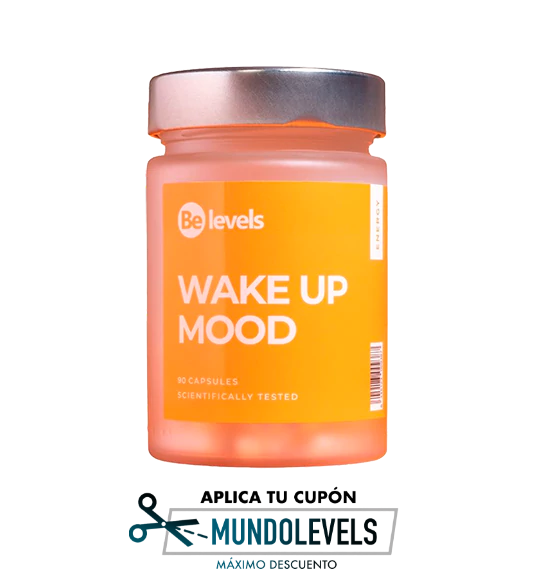The study supplements aim to increase our concentration and alertness. Additionally, through these study supplements, we can reduce mental fatigue, among other cognitive abilities.
The study supplements can also reduce the decline in brain function related to age. In this article, we will analyze some ideal supplements to improve brain functions and increase our concentration at the brain level.
Supplements for students
Surely many people are looking for some help to increase your brain function and increase your concentration, thus getting the most out of and efficiency of cognitive abilities.
It is very common for the exam period to approach and we look for supplements to study and improve brain function. The purpose of this article is to analyze some of them.
There are countless supplements that can improve cognitive performance through secondary pathways such as omega-3 by reducing inflammation, B vitamins, vitamin C for its antioxidant action, etc. However, in this article, we will focus on nootropic substances or study supplements.
These substances can help in various ways, including action on receptors, enzymes, transporters, ion channels, etc. In general, they increase brain function by altering neurotransmitters.
Supplements for studying
Below we analyze a list of study supplements that could improve cognitive performance in students.
Fish oils
Fish oil supplements are a source of docosahexaenoic acid (DHA) and eicosapentaenoic acid (EPA), two types of omega-3 fatty acids.
These fatty acids have been linked to many health benefits, including those related to cognitive improvement of our brain (1).
Docosahexaenoic acid plays an important role in maintaining the structure and function of our brain. In fact, it accounts for about 25% of the total fat and 90% of the omega-3 fat found in the cells of our brain (2, 3).
The other omega-3 fatty acid in fish oil has anti-inflammatory effects that can protect the brain against damage and aging (4).
Taking study supplements like DHA supplements has been linked to better thinking skills, memory, and reaction time in healthy people (5, 6, 7).
Normally, the recommended daily amounts of omega-3 fatty acids are achieved by eating two servings of oily fish per week (8), however, for those who do not meet the requirements, it may be an excellent option to resort to omega-3 supplementation to maintain brain health and thus increase cognitive performance for students.
“Omega-3 has anti-inflammatory effects to protect the brain and is related to cognitive improvement of our brain.”
Caffeine for studying
Caffeine is an excellent natural stimulant that we find in tea, coffee, etc. Caffeine works by stimulating the brain and central nervous system, increasing our alertness and making us feel less tired (9).
Scientific evidence has shown that caffeine can make you feel more energetic and also allow a notable improvement in memory, reaction times, and cognitive function (10, 11).
Doses between 200-400mg per day for an adult are generally considered safe and are sufficient to achieve beneficial effects (12). However, we must adapt it to our body, as not everyone reacts the same to caffeine and in certain cases, it can cause anxiety or problems falling asleep.
We can highlight that caffeine is undoubtedly one of the best supplements for studying as it increases attention, alertness, concentration, and mental clarity.
“Caffeine is one of the best supplements for studying. It stimulates the brain and central nervous system, increasing our alertness and making us feel less tired.”
Below we leave you a supplement with stimulants ideal for increasing our cognitive performance and performing better when studying or retaining.
L-Theanine
This substance is an amino acid that we normally find in tea. This L-Theanine has relaxing properties thanks to the increased production of GABA. We could summarize that this substance is a precursor of the inhibitory neurotransmitter of the central nervous system.
Its combination with caffeine to exert a synergy action, increasing alertness and concentration at the brain level.
More research in this field would be ideal, but early research suggests that the combination of Theanine with Caffeine can increase cognitive performance (13).
Combining caffeine and L-Theanine
Authors like Owen and collaborators analyzed the combination between caffeine and L-Theanine (50mg-100mg) and the conclusions were that they managed to see an increase in speed and accuracy when performing an attentional task after 60 minutes of ingestion.
Therefore, the conclusions were that the combination of caffeine and theanine seems to significantly improve memory and attention compared to a group that only ingested caffeine (13).
“The combination of Caffeine with L-Theanine seems to have a synergistic effect that increases alertness and concentration at the brain level.”
Creatine
Creatine is a natural substance that plays an important role in energy metabolism. It is naturally found in the body, mainly in the muscles and in small amounts in the brain.
Although it is a popular supplement, you can find it in some foods, namely animal products such as meat, fish, and eggs.
Interestingly, creatine supplementation can improve memory and thinking skills in people who do not eat meat (14).
A study by Rae and collaborators found that vegetarians who took creatine supplementation experienced a 25 to 50% improvement in performance on a memory and intelligence test.
This suggests, in the absence of more research, that taking creatine supplementation could help cognitive improvement.
“Creatine supplementation seems to establish certain improvements at the cognitive level in tests conducted on memory and intelligence.”
Choline
Choline is postulated as one of the best substances to increase acetylcholine concentrations in our brain. A neurotransmitter that participates in synapses, being able to have excitatory or inhibitory activity depending on the receptor used.
As we say, it is one of the neurotransmitters most involved in learning and attention and can improve memory episodes (16).
“Acetylcholine is one of the neurotransmitters most involved in learning and attention and can increase the different types of encoding of new memory episodes in different cortical structures.”
Where to buy a study supplement?
We definitely recommend wake up mood, a supplement from Be Levels that, in addition to having L-tyrosine, has more compounds that will improve your energy and concentration.
- Improved formula!
- Suitable for vegans. Free of gluten, lactose, and titanium dioxide.
- Vegetable capsules.
- 3 patents included (alipure, QualiB, DSM).
- 9 natural ingredients at the service of your personal productivity.
- Optimal product for athletes.
>> You can get it with the maximum discount by applying the coupon “MundoLevels”.
Conclusions about study supplements
As we see, there are certain substances or study supplements that can increase the cognitive performance of our brain, improving memory, retention, and prolonged attention level.
While it is true, it would be ideal to continue conducting research to continue seeing the effects of these substances on our body and our brain in particular.
Caffeine, choline, L-Theanine, and creatine seem to be postulated as good supplements for studying and thus improving our cognitive performance.
Podcast “5 study supplements”: Play in new window |
Subscribe to Apple Podcasts | Spotify | Google Podcasts |
Bibliographic references
- Dyall SC. (2015). Long-chain omega-3 fatty acids and the brain: a review of the independent and shared effects of EPA, DPA and DHA. Front Aging Neurosci 21:7:52.
- Chang, CY., Ke DS., Chen JY. (2009). Essential fatty acids and human brain. Acta Neurol Taiwan, 18(4):231-41.
- Weiser MJ., Butt, CM, Mohajeri MH. (2016). Docosahexaenoic Acid and Cognition throughout the Lifespan. Nutrients 8(2): 99.
- Bozzatello P. et al. (2016). Supplementation with Omega-3 Fatty Acids in Psychiatric Disorders: A Review of Literature Data. J Clin Med 5(8): 67.
- Lee LK, Shahar, S, et al. (2013). Docosahexaenoic acid-concentrated fish oil supplementation in subjects with mild cognitive impairment (MCI): a 12-month randomised, double-blind, placebo-controlled trial. Psuchopharmacology 225(3): 605-12.
- Thomas, J., Thomas, CJ, et al. (2015). Omega-3 Fatty Acids in Early Prevention of Inflammatory Neurodegenerative Disease: A Focus on Alzheimer’s Disease. Biomed Res Int. 172801.
- Zhang, XW. Hou WS, Li, M, Tang ZY. (2016). Omega-3 fatty acids and risk of cognitive decline in the elderly: a meta-analysis of randomized controlled trials. Aging Clin Exp Res, 28(1):165-6.
- Ruxton, CHS. (2011). The benefits of fish consumption. Nutrition Bulletin. 24.
- Nawrot P., Jordan S., et al. (2003). Effects of caffeine on human health. Food Addit Contam, 20(1):1-30.
- Brice CF, Smith AP. (2002). Effects of caffeine on mood and performance: a study of realistic consumption. Psychopharmacology, 164(2): 188-92.
- Smith AP., Brockman P. et al. (1993). Investigation of the effects of coffee on alertness and performance during the day and night. Neuropsychobiology, 27(4): 217-23.
- Wierzejska R. (2012). Caffeine common ingredient in a diet and its influence on human health. Rocz PAnstw Zakl Hig, 63(2): 141-7.
- Owen, G. N., Parnell, H., De Bruin, E. A., & Rycroft, J. A. (2008). The combined effects of L-theanine and caffeine on cognitive performance and mood. Nutritional Neuroscience, 11(4), 193–198.
- Benton, D., Donohoe, R. (2011). The influence of creatine supplementation on the cognitive functioning of vegetarians and omnivores. Br J Nutr, 105(7): 1100-5.
- Rae C., Digney AL., et al. (2003). Oral creatine monohydrate supplementation improves brain performance: a double-blind, placebo-controlled, cross-over trial. Proc Biol Sci, 170(1529):2147-50.
- Lippelt, DP et al. (2016). No Acute Effects of Choline Bitartrate Food Supplements on Memory in Healthy, Young, Human Adults. PloS One, 11(6).


